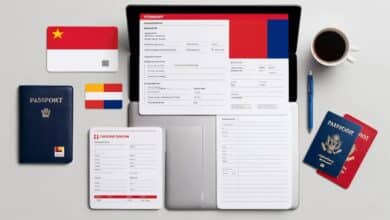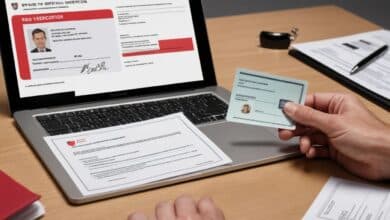From Start to Finish: How to Apply for a Nursing Visa in Germany
Germany’s healthcare sector offers rewarding career opportunities for skilled professionals worldwide.
With an aging population creating urgent demand, the country actively seeks qualified individuals to fill critical roles. Over 40,000 positions remain open today, a number projected to grow exponentially in the coming years.
The process to secure work authorization typically spans 12–24 months and involves multiple steps. Candidates must verify their credentials, complete language training, and finalize employment contracts. Reputable programs streamline this journey by offering free support services, including accommodation and qualification recognition.
Salaries in this field reflect experience and specialization, ranging from €2,300 to €4,000 monthly. Successful applicants gain access to comprehensive social benefits and long-term job stability within Europe’s leading medical facilities. These opportunities come with structured integration support to ease relocation challenges.
This guide details every phase of the application journey—from understanding Germany’s healthcare standards to navigating legal requirements. Readers will discover practical strategies for aligning their skills with employer expectations while maximizing career growth potential.
Overview of Nursing Visa Sponsorship in Germany
Specialized initiatives connect qualified professionals with German healthcare employers through tailored support. These structured programs simplify relocation by handling bureaucratic processes while maintaining transparency. Participants gain access to permanent roles rather than temporary assignments, ensuring long-term stability.
Comprehensive Support Systems
Leading programs like CWC eliminate financial barriers by offering free services without salary deductions. Candidates receive help with language certifications, credential validation, and legal paperwork. Ongoing assistance continues after arrival, including career advancement resources and cultural integration support.
Employer Partnerships Matter
Healthcare facilities partnering with these initiatives undergo strict quality evaluations. They commit to fair treatment and professional development opportunities for international staff. Over 50 top-tier medical centers participate, allowing candidates to select positions matching their expertise and lifestyle preferences.
These collaborations ensure professionals begin work with fully processed documentation and recognized qualifications. Employers provide clear employment terms through standardized contracts, creating mutual trust from day one.
Navigating the German Healthcare and Immigration Landscape
With roots tracing back to the 1880s, Germany’s healthcare framework combines public and private elements to deliver world-class medical services. This dual structure serves as a global benchmark, offering standardized care across nearly 2,000 institutions. Professionals entering this environment join a network prioritizing innovation and patient-centered solutions.
Insights into the Healthcare System
Three hospital categories—public, private, and non-profit—form the backbone of care delivery. Each maintains cutting-edge technology and strict quality protocols. “Our focus remains on sustainable staffing solutions,” notes a Berlin hospital administrator, highlighting efforts to address workforce gaps intensified by demographic shifts.
Chronic disease management and aging populations drive demand for skilled professionals. The pandemic accelerated this need, prompting streamlined hiring processes for international candidates. Modern facilities now prioritize interdisciplinary collaboration, creating dynamic workplaces for career development.
Visa and Work Permit Essentials
Securing authorization involves three critical phases: credential validation, language certification, and contract finalization. Applicants must demonstrate B1/B2 German proficiency and submit recognized qualifications through centralized portals. Employers typically guide candidates through these steps, ensuring compliance with federal regulations.
Successful applicants gain access to Europe’s largest medical economy, with salaries reflecting specialized expertise. While processing times vary, most receive approvals within 4-6 months when documentation is complete. This pathway offers stability in a sector projected to grow 15% by 2030.
Step-by-Step Application Process
Navigating the path to healthcare roles in Europe requires understanding each phase of the journey. Structured programs break this into manageable steps, ensuring candidates meet regulatory standards while aligning with employer needs.
Screening, Document Collection, and Individualized Hiring Plans
The first step involves a detailed review of professional history and career objectives. Specialists assess credentials to match candidates with facilities that fit their expertise. Required documents include:
- Educational diplomas
- Work experience verification
- Valid identification
Custom hiring plans address location preferences and specialization areas. This tailored approach increases success rates for both applicants and employers.
Interview Process and Employment Contract Coordination
Qualified professionals then enter interview rounds with potential employers. These discussions evaluate technical skills and adaptability to workplace culture. Successful candidates receive formal offers outlining:
- Salary ranges
- Benefits packages
- Professional development opportunities
Legal teams verify contract terms comply with labor laws before finalization.
Qualification Recognition and Language Training
Credential validation ensures foreign certifications meet local standards. Some cases require supplementary courses or exams. Simultaneously, candidates pursue language training to achieve B2 proficiency.
“Language mastery is non-negotiable,” states a Berlin-based program coordinator. It ensures patient safety and team collaboration. Most complete training within 6-9 months through intensive courses.
Key Requirements and Eligibility for Nurses
Securing a position in Germany’s medical sector requires meeting strict educational and language benchmarks. Professionals must demonstrate both formal qualifications and practical readiness to succeed in this demanding field.
Educational and Professional Qualifications Needed
Candidates need either a three-year vocational program certificate or a four-year college degree in their field. Official transcripts and license verification from their home country are mandatory. These documents prove legal authorization to practice and meet German regulatory standards.
Work experience strengthens applications, though specific requirements vary between employers. Recent graduates may qualify if they complete supervised clinical hours. All credentials must undergo recognition processes through designated authorities.
Language Proficiency and Exam Expectations
A B1 certification from Goethe, TELC, or ÖSD forms the foundation for initial eligibility. Achieving B2 level accelerates career progression, often becoming essential within 12-18 months of arrival. “Language mastery isn’t just about paperwork—it’s about patient safety,” emphasizes a Frankfurt hospital training director.
Most candidates reach B1 proficiency through 12 months of daily study combined with professional lessons. Advancing to B2 typically demands 4-6 additional months of focused practice. Employers often provide supplementary language support during the transition period.
Opportunities and Benefits for a Nursing Career in Germany
Healthcare professionals find robust financial rewards and stability in one of Europe’s strongest medical systems. Competitive compensation packages reflect both expertise and growing demand for skilled workers.
Competitive Salaries and Long-Term Job Security
Entry-level roles start at €2,300 monthly, while experienced professionals earn €4,000-€5,930 per month. Annual incomes can exceed €102,000 after five years of service. This earning potential surpasses many other countries’ standards.
The sector’s workforce shortage guarantees stable employment. Over 40,000 vacancies exist today, with projections showing 15% growth by 2030. “Our teams need long-term talent,” states a Munich hospital director.
Social Benefits, Family Integration, and Further Education
Comprehensive social protections include health insurance and pension plans. Workers enjoy 30+ days of annual leave and fixed 38-hour weeks. Families benefit from free schooling and spouse work permits.
Career development opportunities abound through specialized certifications and university partnerships. Many employers fund advanced training while maintaining full salaries. Permanent residency becomes available after five years, allowing professionals to build lasting roots.
Conclusion
Building a career in Germany’s healthcare sector requires strategic preparation but yields lasting rewards. The 12-24 month timeline demands dedication to language mastery and qualification recognition. Successful candidates gain access to a world-class care system through structured programs offering step-by-step guidance.
These initiatives simplify complex processes like document validation and employment contract negotiations. Professionals receive tailored support to meet strict requirements while aligning with employer expectations. Over time, this investment translates into competitive salaries and unmatched job stability.
Germany’s aging population creates urgent openings for skilled workers committed to long-term growth. Beyond financial benefits, the country offers family-friendly policies and pathways to permanent residency. Cultural integration resources help newcomers adapt while maintaining work-life balance.
Though the journey takes time, each phase builds toward meaningful opportunities in Europe’s leading medical landscape. With proper training and perseverance, qualified individuals secure roles that value their expertise and enrich their professional experience.
For more information, explore the official visa website mentioned in this article:
You will be redirected to another website
FAQ
What advantages does the German nursing program offer?
The program provides competitive salaries, long-term job security, and social benefits like health insurance. Employers often cover relocation costs and assist with family integration, including housing and school placements.
How do employers support foreign healthcare professionals?
German employers typically handle visa applications, coordinate language training, and guide candidates through qualification recognition. Many also offer mentorship programs to ease cultural adaptation.
What language skills are required to work in Germany?
Proficiency in German at B2 level is mandatory for most roles. Employers may sponsor language courses, and passing exams like Telc or Goethe-Zertifikat is essential for work permit approval.
How long does the qualification recognition process take?
Recognition of foreign credentials usually takes 3–6 months. Delays may occur if additional training is needed to meet Germany’s healthcare standards. Employers often help streamline this step.
Can family members join during the employment period?
Yes, immediate family members can apply for reunification visas. Employers frequently assist with documentation, and spouses may access job-seeking support upon arrival.
What salary can candidates expect in this field?
Entry-level positions start at €2,800–€3,500 monthly before taxes. Experienced professionals earn higher wages, with additional bonuses for night shifts or specialized care roles.
Are there opportunities for career advancement?
Germany encourages ongoing education through state-funded programs. Many institutions offer pathways to specialize in areas like geriatric care or critical nursing, enhancing long-term career growth.
What documents are needed for the application process?
Essential paperwork includes a recognized degree, proof of language proficiency, a valid passport, and a clean criminal record. Employers often provide checklists to simplify document collection.
Published on: 4 de July de 2025







